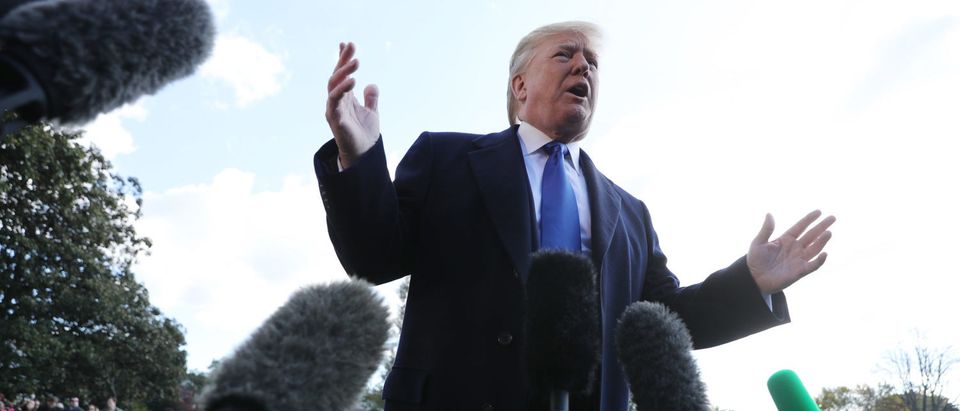Why would American taxpayers pay for anti-U.S. propaganda to be broadcast and published around the world? Beyond just plain, old “stupid” – right? Those of us “woke” to the pervasiveness of the Deep State see it as more than a coincidence. The attacks on America masquerade as independent journalism. Those abuses at the U.S. Agency for Global Media have resulted in a long overdue shake-up. USAGM – which oversees global communications agencies like the Voice of America and numerous regional programs – has suffered from a confused sense of mission and has been transmitting muddled messages.
CEO Michael Pack has come under withering fire for implementing sweeping personnel and policy changes, having removed most of the leadership of USAGM’s various components and pressed for more focused and pro-American content. Imagine that – a Voice of America that actually promotes American values. Compared to the grim narrative pitched by most media outlets that would be a radical message indeed.
Pack’s critics see his reforms as an assault on press freedom. They argue that these government-funded entities should be free to publish whatever they want without interference, even from the agency tasked with their supervision. But no media organization, public or private, operates on the principle of freedom from editorial oversight and direction.
For government-funded media, the editorial mission is to support the national strategic objectives of the United States. This model was developed during the Cold War, when outlets such as Radio Free Europe and Radio Liberty gave information-starved subjects of communist states a window into the free world, a glimpse that their totalitarian masters sought to deny them. These broadcasts promoted the benefits of Western-style freedom and democracy, messages that were otherwise unavailable in the East. Broadcasting anti-American content behind the Iron Curtain would have made no sense, since the communists condemned the U.S. system regularly and hardly needed our assistance.
This approach to global public information helped bring down the Soviet Union. But somewhere between the fall of the Berlin Wall and the present day, government-sponsored media lost their way. The notion of promoting freedom in support of U.S. policy faded. Criticism of the United States increased in the agencies and messaging sympathetic to countries like the People’s Republic of China and Iran began to creep into broadcasts.
Meanwhile USAGM was beset with severe security problems, as laid out in a July 2020 report from the Office of Personnel Management. The agency had long ago been delegated authority to conduct background investigations for security clearances. But program reviews conducted by OPM and the Office of the Director of National Intelligence in 2010 and 2014 identified key deficiencies how USAGM conducted its reviews, and these shortcomings had never been addressed until now.
The situation was so dire that USAGM was forced to hand over all its case work to the Defense Counterintelligence and Security Agency. The reason why this is important is that employees granted high-level security clearances under the lax USAGM process could transfer these clearances to other government agencies, or otherwise exploit access to classified information shared in the system. Thus, it could become a gateway for espionage. As one high level USAGM official said, “if I was a foreign spy, this is the agency I would target.”
Pack is taking a blowtorch to this dysfunctional system. His critics charge that his return to first principles is an attempt to make USAGM into a pro-Trump propaganda machine. But there is an important distinction between promoting national policy and advocating partisan politics. This was vividly illustrated last month when VOA’s Urdu service ran a two-minute Joe Biden Muslim outreach campaign video in which he quoted Mohammed and pledged to end the “Muslim ban” in immigration, while the soundtrack touted “brown power” over images of Linda Sarsour and Rashida Tlaib, ending with the VOA logo. In response, Tabinda Naeem, digital managing director of the VOA’s Urdu language service, was placed on leave, and contracts were terminated for four contractors involved with the video. This blatant misuse of authority in the service of a political campaign is the kind of thing Donald Trump’s critics fear might happen at USAGM, but only Joe Biden’s supporters have actually done.
Some members of Congress have balked at Pack’s rapid restructuring, threatening to increase oversight or calling on him to resign. But Pack has President Trump’s strong support, and the president has pledged to veto measures intended to reign in the reforms. He “wants to make the agency work,” the USAGM official said, “to take it back to the glory days, promoting positive information about America and its policies, not just doing what is best for bureaucrats or convenient for spies.” And the amount of pushback Pack is getting from the old guard only tells us that his necessary reforms are starting to make a difference.
Chris Farrell is director of investigations and research at Judicial Watch, a nonprofit government watchdog. He is a former military intelligence officer.












